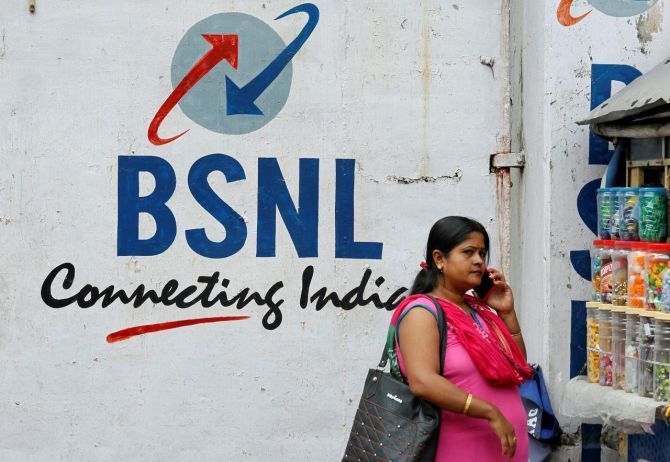BSNL is providing telecom services in remote parts of the country and maintaining 17,000 to 18,000 exchanges, incurring Rs 3,000 to Rs 4,000 crore losses every year. Otherwise, these villages will be cut off.

Distressed employees of cash-strapped Bharat Sanchar Nigam (BSNL) on Monday urged Prime Minister Narendra Modi to revive the company and make it a strong telecom operator.
In a letter to Prime Minister Narendra Modi, the staff of the beleaguered company said, “We heard that the finance ministry is proposing the closure of BSNL, instead of its revival.”
“It is felt that those officers involved in the process may not get an opportunity to learn about the critical role played by BSNL in nation building and in implementing government schemes and projects,” general secretary of BSNL union Sebastin. K said in the letter.
Stressing the role played by the company during critical situations, the employees have sought relief from the government.
Sebastin said during the recent developments in Jammu & Kashmir, the government was fully dependent on BSNL landline and mobile for providing services to a few government functionaries and security forces in Kashmir valley, despite the company incurring huge losses.
No other operator is allowed to provide services due to security reasons.
BSNL is providing telecom services in remote parts of the country and maintaining 17,000 to 18,000 exchanges, incurring Rs 3,000 to Rs 4,000 crore losses every year.
Otherwise, these villages will be cut off.
The aggrieved employees said, “A wrong notion has been created by the government, management and the media that the main reason for BSNL loss is its employee cost.”
The letter said, BSNL provides direct employment to several people and most of the operations and maintenance activities are done by its own employees, whereas other operators outsource majority of their works.
They added, the outsourcing agencies engage people but their cost is not reflected in the company accounts as wage bill.
Also, BSNL provides landline services which require huge manpower.
Photograph: Rupak De Chowdhuri/Reuters











